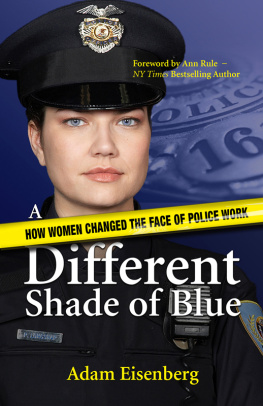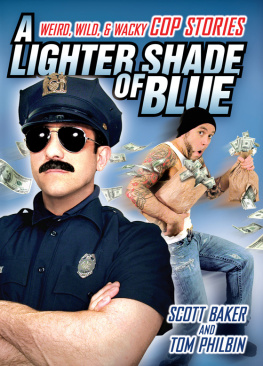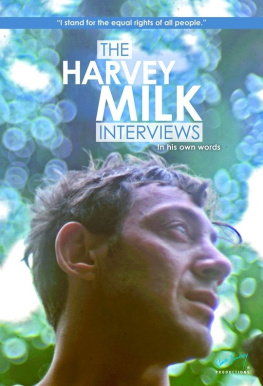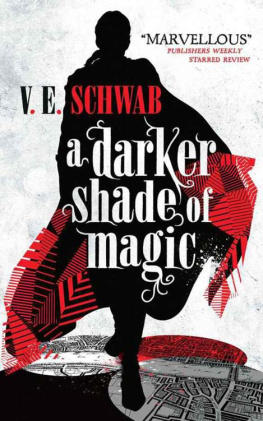John Harvey - A Darker Shade of Blue
Here you can read online John Harvey - A Darker Shade of Blue full text of the book (entire story) in english for free. Download pdf and epub, get meaning, cover and reviews about this ebook. genre: Detective and thriller. Description of the work, (preface) as well as reviews are available. Best literature library LitArk.com created for fans of good reading and offers a wide selection of genres:
Romance novel
Science fiction
Adventure
Detective
Science
History
Home and family
Prose
Art
Politics
Computer
Non-fiction
Religion
Business
Children
Humor
Choose a favorite category and find really read worthwhile books. Enjoy immersion in the world of imagination, feel the emotions of the characters or learn something new for yourself, make an fascinating discovery.

- Book:A Darker Shade of Blue
- Author:
- Genre:
- Rating:5 / 5
- Favourites:Add to favourites
- Your mark:
- 100
- 1
- 2
- 3
- 4
- 5
A Darker Shade of Blue: summary, description and annotation
We offer to read an annotation, description, summary or preface (depends on what the author of the book "A Darker Shade of Blue" wrote himself). If you haven't found the necessary information about the book — write in the comments, we will try to find it.
A Darker Shade of Blue — read online for free the complete book (whole text) full work
Below is the text of the book, divided by pages. System saving the place of the last page read, allows you to conveniently read the book "A Darker Shade of Blue" online for free, without having to search again every time where you left off. Put a bookmark, and you can go to the page where you finished reading at any time.
Font size:
Interval:
Bookmark:
John Harvey
A Darker Shade of Blue
INTRODUCTION
Crime seldom pays, wrote James Crumley, love seldom works. Thankfully stories, like fishing, occasionally work. In ways inexplicable. I dont know about the fishing; but about stories, as he was about a number of things, Jim had it right. Inexplicable.
I remember reading one of the earlier Charlie Resnick stories at a short story seminar somewhere in the States and being confronted by a puzzled writing student afterwards: I loved your story, she said, but it did all the things weve been taught not to do.
Well, yes.
If I lined up a bunch of my favourite writers of short fiction and tried to use their work to make a template for the perfect story, it just wouldnt happen. How to match Hemingway with Katherine Mansfield; Alice Munro or Lorrie Moore with the Socrates Fortlow stories of Walter Mosley or the evocations of mining life in D. H. Lawrence; the southern Ireland of John McGahern with the Wyoming of Annie Proulx for that matter, the Raymond Carver stories before they were heavily edited by his mentor, Gordon Lish, or after?
I think, in a way, short stories are like poems. Not in some airy-fairy, self-indulgent, fancy word and obscure metaphor kind of way (of course, no really good poems are like that, either) but like poetry in that they depend on the right, if often surprising, choice of word or phrase, upon exactness and the creation of atmosphere, upon the ability to make relatively few words carry more meaning than the page count suggests. Inference rather than explication.
I know I get a great deal of pleasure from writing them, something that wasnt always the case. They used to terrify me. Admirable, I thought, but out of reach. It wasnt until Id been writing for almost twenty years fiction, television, radio that I allowed myself to be cajouled into doing my first ever story. A piece about Charlie Resnick, as it happened, Resnick and jazz Nows the Time; it ends with him making a visit to Ronnie Scotts. Now, theres (almost) nothing I like better. If I could make a comparable living out of writing short stories as opposed to the longer stuff, thats what Id do. Someone gets in touch and wonders if youd like to contribute to this or that collection, an email comes from Piacenza, or St Louis, Mo and you know one of the best things about it? Allowing for time later to polish and refine, it can be done and dusted inside a couple of weeks. Compare that to setting out on a new novel, all those months stretching into the distance with rarely an end in sight. Thats what I find terrifying now.
In this collection, which brings together all of the short fiction Ive written since the William Heinemann edition of Nows the Time in 1999, there are four stories featuring Charlie Resnick, seven featuring my north London-based private detective, Jack Kiley, and one Trouble in Mind in which they both appear, though Kiley is perhaps the major player.
The Resnick stories Ive often used to give a little more space to some of the characters and relationships that received somewhat short shrift in the novels Eileen Cooke, who turns up in both Billies Blues and The Sun, the Moon and the Stars is a case in point. They also served as a way of letting dedicated readers know what Resnick himself was up to in the wilderness years between Last Rites and Cold in Hand.
Jack Kiley, before turning private eye a copper in the Met and, briefly, a professional footballer, has never set foot in a novel, nor do I think he ever will. As I see him, hes best suited to the short form quick, generally small investigations, in and out. As a writer and a bit of a crime fiction aficionado (well, I was), Kiley gives me the chance to hark back to Hammett and Chandler, Ross Macdonald and the rest, letting him loose, angry and incorruptible, in the mean streets of Kentish Town. When Kileys in his office and a womans footsteps are heard approaching his door, you know things are going to get worse before they get better. These are the stories I think Jim Crumley would have liked best.
Short stories can also be invaluable for the opportunity they provide for trying out characters and situations you are unsure of walking them round the block, as I believe Elmore Leonard once described it. I wrote Karen Makes Out, Leonard said, to see if Id like Karen Sisco enough to develop a novel around her as a federal marshal. Clearly, he did, and Out of Sight was the result; first the novel, and then the movie.
Frank Elder first saw the light of day in Due North and went on to be the main protagonist in three novels, Flesh and Blood, Ash and Bone and Darkness and Light, while police officers Will Grayson and Helen Walker, who make a belated appearance in Snow, Snow, Snow, on the trail of a prolific hit man who has so far eluded capture, handled most, but not all, of the detection in Gone to Ground and Far Cry.
Tom Whitemore, the leading character in Sack O Woe, one of the most recent stories included here, had a walk-on part in the third Elder novel, Darkness and Light, and I remembered him as someone I wanted to return to. Now that hes been around his particularly difficult block a little more, whos to say he wont appear again?
Drummer Unknown, which, as was pointed out to me, is the only piece Ive written in the first person, was a relatively early attempt to write about the world of Londons Soho between the late 50s and the mid-60s a world of jazz clubs, street corner vice and petty crime (some not so petty) and a particularly British kind of bohemia that I skirted round and began tentatively to explore in my late teens and early twenties. The two stories towards the end of the book, Just Friends and Minor Key, take this further, both revolving, as they do, around a central group of characters who might, one day, be dealt with at fuller length in the novel set in and around Soho Ive been threatening to write for so long neither my editor nor my agent believe Ill ever actually do so. The stories are there, though theyre among my favourites in the collection and the characters are starting to take shape, so you never know.
Its true to say that all of these stories exist because someone asked me to write them. Seba Pezzani, for instance, one of my Italian translators (and organiser of the rather wonderful blues and fiction festival, Dal Mississippi al Po) wanted something for a series in the Italian newspaper, Il Giornale, hence Ghosts. My publisher in Finland, Otava, requested a Resnick piece to distribute at the Helsinki Book Fair, thus Well, You Neednt.
Certain editors and compilers of short story collections have been assiduous and kind Maxim Jakubowski, Otto Penzler, Robert J. Randisi come immediately to mind. Without them, this book would be a meagre thing, indeed. Ross Bradshaw, at Nottinghams Five Leaves, has been a consistent supporter, as have Ed Gorman and Martin Greenberg in the States. But perhaps the final thank you on behalf of so many writers of crime stories as well as myself- should go to the estimable Janet Hutchings, editor of Ellery Queen Mystery Magazine, who has published many of my stories through the years, filtering out most of the extreme profanities but leaving the heart intact.
SACK O WOE
The street was dark and narrow, a smear of frost along the roofs of the occasional parked car. Two of a possible six overhead lights had been smashed several weeks before. Recycling bins blue, green and grey shared the pavement with abandoned supermarket trolleys and the detritus from a score of fast-food take-aways. Number thirty-four was towards the terrace end, the short street emptying onto a scrub of wasteland ridged with stiffened mud, puddles of brackish water covered by a thin film of ice.
January.
Tom Whitemore knocked with his gloved fist on the door of thirty-four. Paint that was flaking away, a bell that had long since ceased to work.
Font size:
Interval:
Bookmark:
Similar books «A Darker Shade of Blue»
Look at similar books to A Darker Shade of Blue. We have selected literature similar in name and meaning in the hope of providing readers with more options to find new, interesting, not yet read works.
Discussion, reviews of the book A Darker Shade of Blue and just readers' own opinions. Leave your comments, write what you think about the work, its meaning or the main characters. Specify what exactly you liked and what you didn't like, and why you think so.




